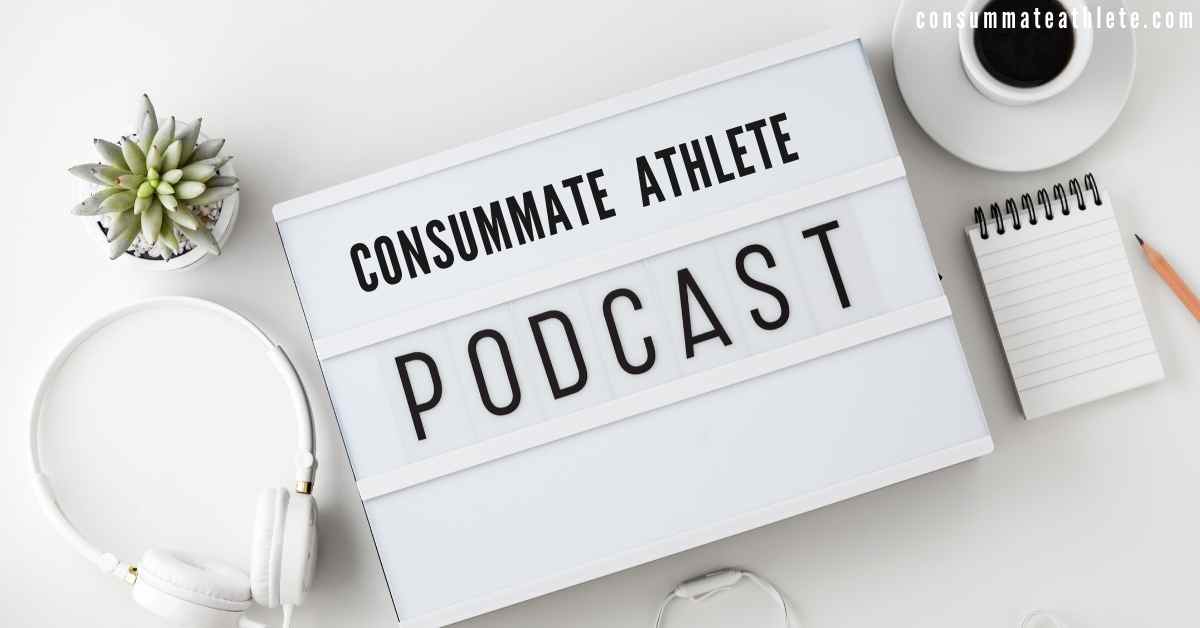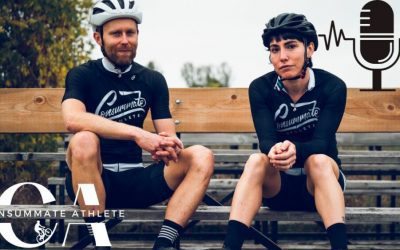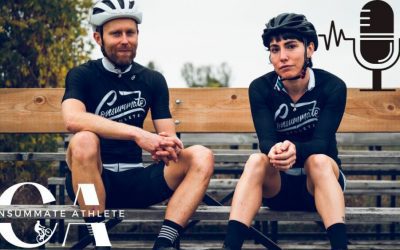Sleep, position, supplements, routine, habits, research, resolutions
Today we talk to Dr. Amy Bender a PhD in sleep science. She is a member of the Center for SLeep in Calgary, Alberta, Canada where she works with many Canadian Olympic athletes on optimizing sleep. She is a wealth of knowledge on the latest sleep research and practical ways you can implement good sleep hygiene practices into your daily life.
A great first podcast for the new year – support your goals for 2017 !
Download on Itunes (subscribe & leave a review Please!)
Download Android / Stream / Listen online
Download and view on Wide-Angle-Podium Site
BIO
Amy works with Team Canada athletes, including curling, speed skating, rowing and swimming to optimize sleep and travel. Personally, she has done an Ironman, played basketball and is the mom to 2 little ones.
Social / links
Questions
Tell us your story … how do you end up as a sleep scientist ?
–How do you assess an athlete ? ( Tweet on October/12/2016 — Sleep Screening->Quantity-> Quality-> Timing-> Behaviors then Pillows
– sleep questionnaire – british journal
– a coach quantity , 9 hrs (athlete more) , QUALITY (sleep disorder, snoring, refreshed feeling) Hygiene
– ask if athlete is medicating to sleep
– what is good sleep? – what is sleep hygiene ?
-> caffeine use ?
-> time to bed,
-> electronic device use – ver
->
Put phone away – not just the blue light — content can be exciting
– the blue light glasses can help
– the apps (flux and night shift ect) are better than nothing but not the s
– is there a bad sleep position ?
-> back sleepers = watch for snoring
– > side sleeping position – likely good to use pillows/bolster to align knee/spine (*Peter likes this tactic for sleep position )
Blackout Lights?
Melatonin – shown to be effective at shifting circadian rhythm but more to shift to earlier bedtime or for travel
– consider why you are using it , especially if becoming routinized
–
Magnesium– can help with leg cramping, in a bath for relaxation perhaps . THere is not a lot of research for sleep/ improv
Foam Rolling/Stretching/Meditation – 1st hour before bed can parcel into sections 20min- prepare for next day (clothes, lunch, to-do) , 20min hygiene (teeth, shower, hair) , 20min relaxing activities (paper book, deep breathing)
Tea/ sleepytime tea ??? – not necessarily supported but routine may be helpful
– performance – Examples where improving sleep improves performance
– case studies ?
– 25 % of athletes satisfied with sleep
– after intervention
==> Can assess via subjective measures, (quantity, timing, quality)
Sleep trackers ?
– research not accurate, even up to an hour off ?
– hard to assess quality without an EEG
– can use stop watch or an app to start/stop sleep physically as hard to recall accurately
Wakings / staying asleep
– do you have issues maintaining sleep ?
– 1 waking for bathroom and not being able to get back to sleep can be
– sleep disorder (snoring, apnea, snoring, kicking, perhaps underlying reason for waking up (not necessarily to go to washroom)
– hydration – athletes significantly more times to go to washroom – shift hydration earlier in the day is piece of advice (not reduce but shift earlier)
= technique for mom’s -> Cognitive shuffling – think of a word (ie. bedtime) and then think of all objects that start with B, E, D
Big Advice on Sleep for High Performance !
– Nap !
– Boosting mood , alertness, motivation, performance
– nap for 20min daily (set alarm for 30min)
– Case-study with wrestler not satisfied with sleep (not napping) – got her to plan in napping like training and had incorporated nap and was much better performance during practice.
THINK ABOUT SLEEP ACROSS THE WEEK not the day
– average across week for ‘balance’
– count your naps, more on off-days
– can bank sleep the week of event or travel to make less of a dent
NIGHT OF EVENT SLEEP ?
– if VERY bad ( 2hrs ) would see impact BUT if you have been sleeping well before and then ~6hrs
– sleep deprivation studies where 1 group pre-loaded on sleep before and one didn’t … the group that preloaded did better with their banked sleep .
–
Possible TO BANK SLEEP – watch when you do it to not shift sleep period
-> Try to keep consistent sleep period … try not to change more than an hour (sleep in 30min and get in bed earlier)
– getting to bed earlier won’t affect as n
–
BOOKS
* Take a Nap! Change Your Life. Nov 16, 2006 by Mark Ehrman and Sara Mednick http://amzn.to/2eASNTX
*
Sink Into Sleep: A Step-by-Step Workbook for Insomnia — Dr. Judith R.Davidson http://amzn.to/2eATZa0
SOCIAL LINKS
sleep4sport https://twitter.com/sleep4sport
Centerforsleep https://twitter.com/CentreforSleep




